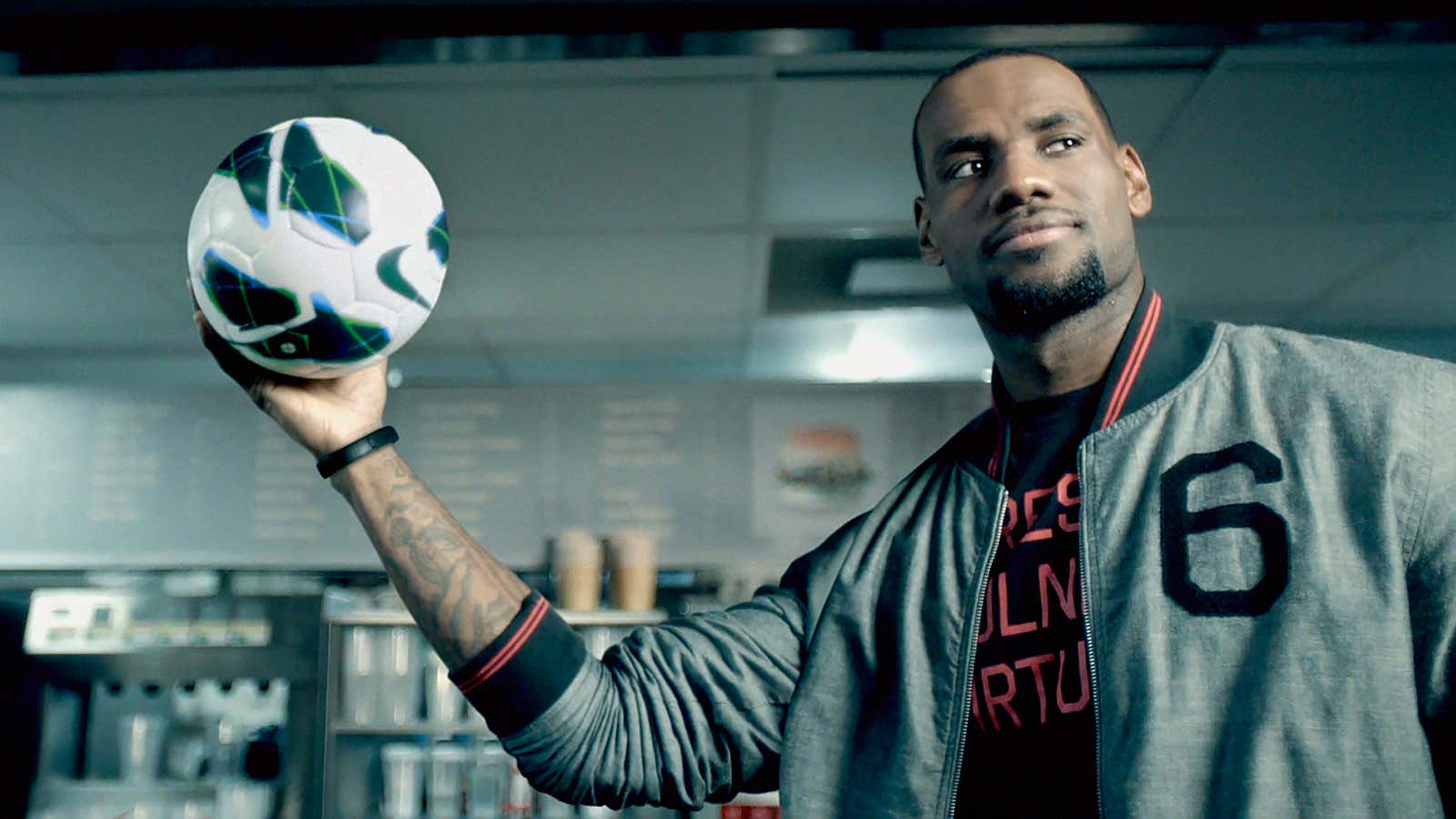In a literal sense, sustainability is about being able to maintain performance over a long period. More commonly it refers to how environmentally sound a business is. But more and more, the two are inseparable—and the apparel and footwear industries are taking notice.
While they’re still notorious polluters that use huge amounts of resources, many of the biggest brands now have programs in place to clean up their supply chains. A number are also at least trying to address labor issues that see some of the world’s poorest exploited for profits. Those actions are good for business in the long run; they save money and keep companies stable, allowing them to sustain growth. According to an in-depth note for investors from Morgan Stanley on which North American apparel and footwear companies are the most sustainable, Nike was number one, followed by VF Corp., which owns brands such as The North Face, Wrangler, and Vans.
The report, compiled by analyst Jay Sole, measured sustainability based on each brand’s performance on environmental, social, and governance issues—it calls all three together ESG. Among the environmental issues it looks at are brands’ efforts to reduce the amount of waste they produce, and how they source and use raw materials, such as cotton and leather, which can be water-intensive and heavy polluters. Social issues include how a brand manages its supply chains, treats labor, and ensures factory safety. Governance issues include to what extent sustainability is integrated into the business strategy, and how “shareholder friendly the corporate governance structure is.”
“Nike leads because it not only has the most extensive disclosure, but also has concrete quantified plans to improve in key ESG areas such as environmental and social,” the report says. “For example, Nike has the most extensive disclosures on water usage, waste creation, and factory and community engagement, plus plans to improve on each key performance indicator (KPI) within those areas.” Nike took first in environmental and social performance, and came in second on governance, outranked only by VF Corp. The report highlights Nike measures such as making jerseys from recycled plastic bottles.
It’s a big turnaround from Nike’s reputation in the ’90s, after an investigation by Life Magazine made Nike the face of sweatshop and child labor. Even so, not everyone agrees on Nike’s sustainability. Greenpeace’s “Detox Catwalk” list currently labels Nike a “greenwasher” (a company that markets how green it is to hide unsustainable practices) and says it’s “way behind on transparency.”
The report is admittedly limited by an absence of good data. There isn’t enough third-party data to definitively say whether any brand is recklessly overusing resources, or not using fair labor practices in its manufacturing. The evidence, according to the report, suggests none are, but the reality is the prevalence of subcontracting means it can’t say for sure.
But the larger point is that sustainability translates into smart business in some significant ways. Good supply chain control, it says, “can reduce the risk of disruption and reputational damage.” Environmentally friendly practices “can lead to direct cost savings via less raw material usage, plus energy and waste reduction.” A company that prudently manages all these issues together is “likely to have lower risk associated with its business.”
Not least of all, millennials place value on ethical practices, so implementing them can influence whether you get their business or not.
It makes sense, then, that a company’s sustainability practices can affect how it may perform financially in the long-term, which is what shareholders really want to know. It’s clear why a massive luxury group, such as Kering, would treat sustainability as part of its business strategy and why polluting factories would want to clean up their act when shown how they can actually make money in the process.
Morgan Stanley’s report isn’t strictly about profits though. Sustainability, it says, can also be considered valuable in itself, even if it has no impact on a company’s stock price.
